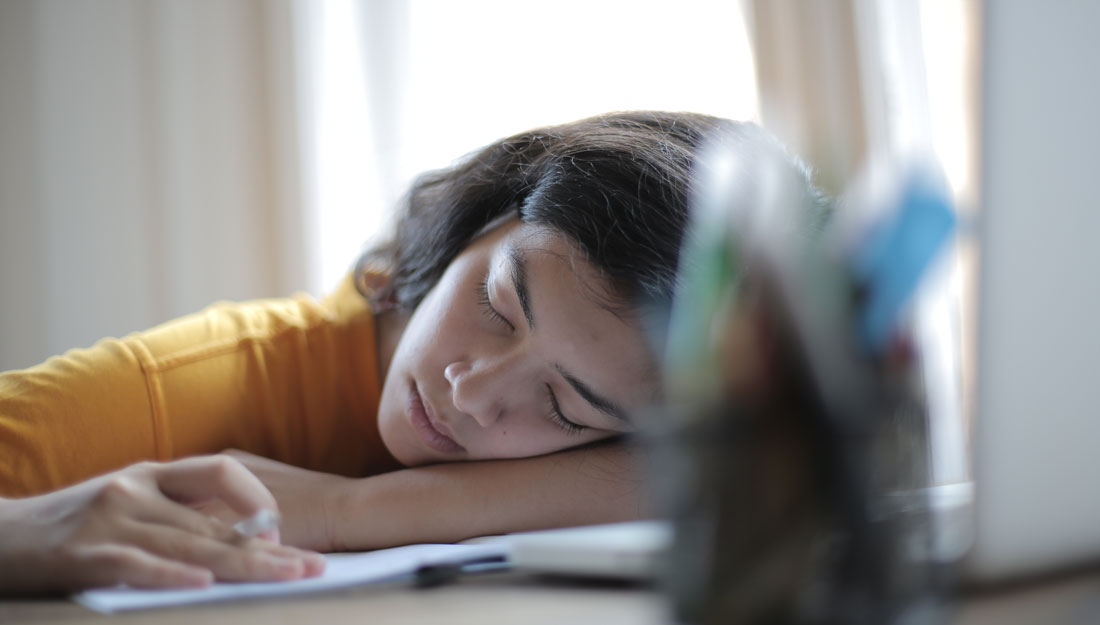- Lindsey Hendrix
- COVID-19, Editor's Pick, Healthy Living, Medicine, Show on VR homepage, Trending
Coping with stress, anxiety and sleep issues amid current events
Sleep problems are on the rise for Americans, but there are ways to manage them

With the magnitude of COVID-19 in the United States, stress, anxiety and depression are on the rise. What’s more, reports and videos of police brutality toward Black Americans have sent the nation into outrage, and this chaos is certain to cause anxiety, stress and loss of sleep.
Even before the events of 2020 began, sleep problems have been prevalent. Insomnia is the most common sleep disorder, according to the Diagnostic and Statistical Manual of Mental Disorders, Fifth Edition (DSM-5), and is characterized by difficulty falling asleep, staying asleep or sleeping too little. It is estimated that about a third of adults report symptoms of insomnia.
How are recent events impacting my sleep?
Sleep problems are often associated with other mental health issues like stress, anxiety and depression. With the restrictions put in place in many areas of the United States, more people are working from home, increasing screen time and getting less physical activity. This alone may be enough to increase stress levels, but there are also economic, medical, family and safety stressors. People are having to find new ways to adjust to their current situation and new coping tools to manage stress. Amidst all of this, it may be normal to not sleep as well at night.
How much sleep should I get?
Many people believe the amount of sleep we need decreases as we age. However, there is actually little research to support this belief and more evidence to support that we are more likely to have sleep disorders as we age. Adults should get seven to nine hours of restful sleep every night.
What can I do about my sleep issues?
Fortunately, there are many interventions to help manage sleep issues as well as other mental health problems that may be causing sleep issues. First are the things you can still control while the environment around you feels uncertain. Having variety in your schedule within the boundaries of physical distancing is important. Try exercising, eating healthy or trying new hobbies during blocks of free time. Whatever you choose, incorporating these activities in your everyday routine will physically target mental health symptoms that contribute to sleep problems.
It’s also essential to continue to feed your social functioning through phone conversations, video chatting or small, physically distanced interactions. With in-person interactions, the Centers for Disease Control and Prevention recommends wearing a face mask, keeping a distance of 6 feet and gathering outdoors if possible to reduce risk of spreading COVID-19. With these guidelines in place, you could talk with a friend in a park, set up an outdoor movie or even play a game like charades with a few friends in your backyard. Another suggestion is making sure that you maintain good sleep hygiene. For example, avoid caffeine, exercise and screen time close to bedtime. Instead, try relaxing activities like reading, meditating or journaling. It can also be helpful to create a relaxing bedtime routine and go to bed at the same time daily.
If you are struggling with keeping up with your daily routine, social interactions or your mental health throughout these difficult times, consider reaching out to a mental health professional. Mental health professionals can provide much needed interaction, hold you accountable to your goals and help you find new perspectives amid this pandemic and social justice awakening. It may also be helpful to consult a medical professional on the use of supplements and sleep medication as needed.
Written by Katie Console and Carlos Aleman, doctoral students of counseling psychology at Texas A&M University. Expert review by Carly McCord, PhD, director of Texas A&M Health Telebehavioral Care and clinical assistant professor at the Texas A&M University College of Medicine.
Media contact: media@tamu.edu


